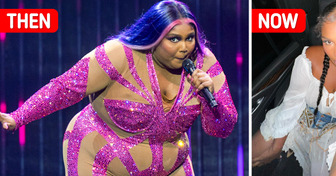10+ Ways Our Bodies Will Be Different in 100 Years
On average, Earth’s waters rise by 14 hundredths of an inch each year, and sometimes I feel like, you know, getting some floaties. So we can’t help but wonder what if we end up living underwater? We now have evidence that humans could adapt to that.
The Bajau — a group of people living in South-East Asia — have evolved to have enlarged spleens. The spleen is the organ that stores oxygen-rich red blood cells. When these cells are released into the bloodstream, they enable divers to hold their breath underwater for longer periods of time. This allows the Bajau people to free dive to depths of up to 230 feet!
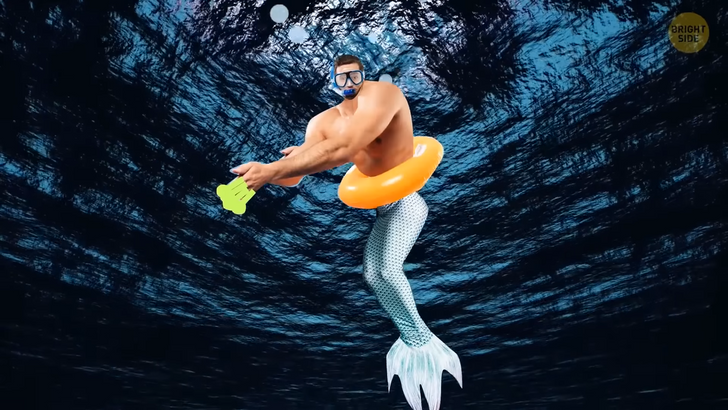
To live underwater, our bodies would have to get bigger so that we could limit heat loss. The bigger the animals, the more heat it produces. We’d also need to grow webbed fingers and toes, to navigate the deep sea. Eventually, we wouldn’t need to have two legs, and they’d fuse together. Our eyes might also get bigger for better vision. Come to think of it, we’d end up looking like merpeople!
Scientists have even looked into the possibility of people being able to fly. Flying creatures have the right body size and the right metabolism for that. We’d need to have the ability to use “fuel” — like the food and water we consume — to produce enough energy to lift ourselves off the ground. Birds, for example, have a very high metabolism. All processes in their bodies go much faster. A hummingbird’s heart can beat up to 1,200 times per minute! A human athlete’s heart can only go as fast as 220 beats per minute.
So, the flight seems almost impossible. There’s no selective pressure on our species to grow wings and learn to fly. Plus, to do it, we’d need to be smaller, have less dense bones, and lose most of our muscle mass. We’d also have to give up on our teeth to become light enough. I ain’t giving up my teeth! If our arms became wings, we wouldn’t be able to do things we needed our hands for. We’d just become clumsier versions of ourselves. (I don’t have that far to go.)
And to grow separate wings, our skeleton and muscle structure would need to radically change over millions of years. The concept of humans living on other planets of our Solar System doesn’t seem very far-fetched. Depending on what planet we’ll end up colonizing, our features will become a lot different, too. Our eyes will get larger if we reach planets at a bigger distance from the Sun than Earth. Because if there’s less light, we’ll need bigger eyes to see better.
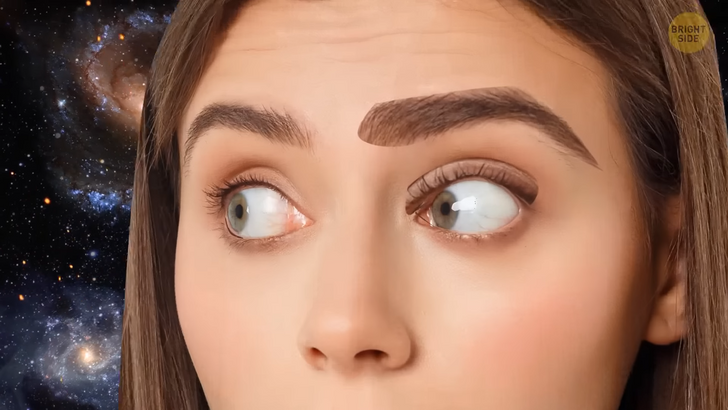
Our skin might also become more pigmented to help with harmful UV radiation outside of Earth’s protective ozone layer. We might even get thicker eyelids and more pronounced brow bones to deal with the effects of cosmic rays. Weirdly enough, (if that wasn’t weird enough), we might evolve to blink sideways to better protect our eyes from cosmic debris coming from all directions since, most likely, gravity on other planets will be weaker than on Earth.
Living on other planets might also mean bigger nostrils. We’ll need those to breathe more easily since oxygen may be scarce in new worlds. We might get thicker and denser hair to protect our heads from potential radiation. On Mars, for example, there’s on average 40 to 50 times more radiation than on Earth.
We will still be able to use a lot of technology. But instead of smartwatches and glasses, we’ll have smaller and more subtle gadgets. Things like communication contact lenses might appear quite soon. Instead of headphones, we might use miniature bone-conduction devices implanted above the ear. Scientists don’t know for sure what people might look like 1,000 years from now. But they can predict it based on previous patterns of evolution.
In the Middle Ages, people had an average life expectancy of 35 years. That means they had to work really hard and produce offspring very early in their lives. These days, life expectancy has more than doubled. More and more people live to be 100 or even 110 years old. We can easily assume we’ll end up living longer than that.
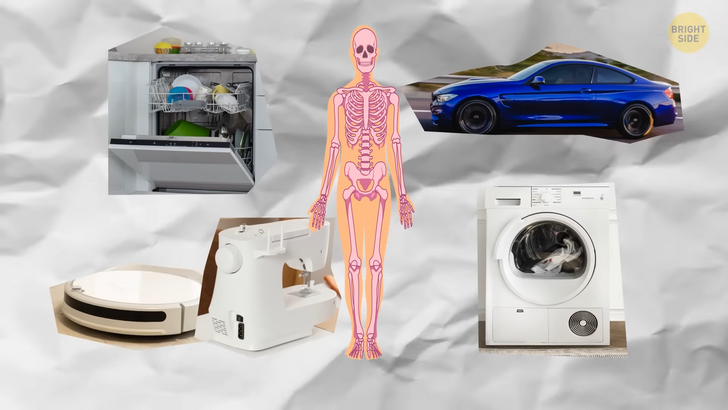
How about our size? All animals have evolved to grow larger over time. We’ve seen it in dinosaurs, whales, horses, and in people, too. Our ancestors from four million years ago were small, barely reaching 4 to 5 feet tall. Most likely, we continue to gain height mostly because we have better nutrition. But also because our genes seem to be evolving, too — as people who are above average in height tend to have more advantageous — or “useful” — genes, based on some studies.
But as we grow taller, we also become more fragile. Over the past 2 million years, our skeletons have become lighter. We’ve started to use more tools for our day-to-day activities. People have also become less active ever since farming was invented. So, our bones are now less dense. And because, these days, we spend a lot of time at our desks, our bone structure might change altogether and alter our postures.
Yet, the taller body trend can’t go on forever. Size cannot increase beyond a certain limit. That’s because the pressure on the tissues of very large bodies is different from the pressure on bodies of medium size. If our bodies continue to grow larger, our shape will need to change too. We’re also likely to see dramatic changes in our minds and personalities. The past 6 million years have roughly tripled our brain size. You might think this trend will continue, but it probably won’t — surprisingly, our brains are getting smaller!
Research shows that the size of the human brain peaked about 20,000 years ago, just before the invention of farming. Then, the human brain started to decrease, and we’re not really sure why. One explanation is that fat and proteins were hard to find once people started farming and eating more vegetables. It made it more difficult to grow and maintain large brains. Our brains also need a lot of energy. They take up around 20% of our daily energy use.
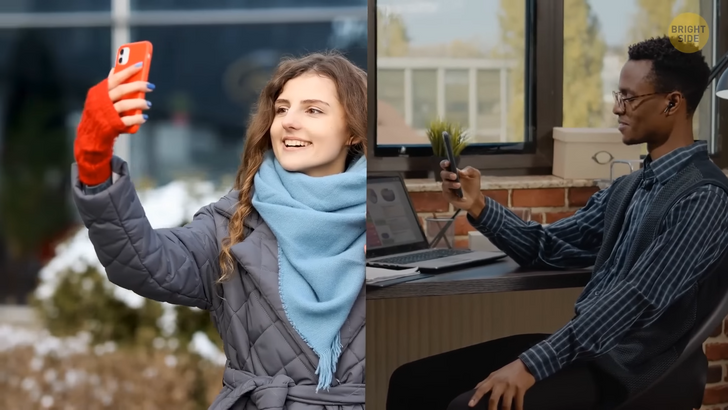
Our personalities are continuing to evolve, too. We don’t need to be as aggressive as ancient hunters and gatherers. Our social interactions are also different. Back in the day, people couldn’t travel far or communicate over long distances efficiently, so the close relationships they had were members of their own local group or tribe.
Now, we can travel all over the world, speak on the phone, chat on our laptops, switch jobs as often as we need to, and even date people online. It pushed us to be more outgoing, open, and tolerant. It also made us more adaptable to different cultures from around the world. There used to be nine human species roaming Earth about 300,000 years ago! The other 8 species probably went extinct due to climate changes. It may be just us for now, but who’s to say there won’t be a new human species?
But since we’re not separated by physical distance anymore, that’s unlikely. To have different species, people need to evolve in isolated groups. Genetics call the phenomenon occurring now “the grand averaging.” We’re becoming more and more alike as generations go by. The world’s population is mixed. People no longer reproduce just within their location.
If enough time goes by, the human race will start to look homogenous. We’ll all become the ’average’ of different physical appearances we see today. We used to have bigger jaws so that we could better chew unprocessed food. These days, we have smaller jaws and less room for all 32 teeth. That’s why we often have to get those pesky “wisdom teeth” removed.

Scientists say the number of teeth we have won’t change. But if we continue to change our eating habits — switching to even softer food — our jaws will become smaller and our teeth — even more crowded. (So I say let’s break out the peanut brittle!) Are our thumbs becoming larger?
Some data suggests some teenagers have overdeveloped thumbs. That’s because they play too many video games. Their thumb muscles have adapted because they’ve been used a lot, but this is not a genetic trait. One person may have a larger thumb, but they won’t pass it on to future generations. (You know, someday well into the future, we might be “all thumbs”! — Hey, I’m there already!)
Comments
Related Reads
15 People Who Found Peace After Life’s Biggest Setbacks
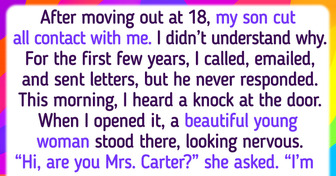
My Mom Lied to Me About My Real Father, and After I Found Out the Truth, My Life Turned Into a Nightmare
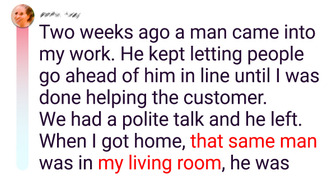
I Refused to Share My Inheritance With My Mom—But a Family Secret Left Me Confused

I Refused to Watch My Daughter’s Kids When She Had a Medical Emergency
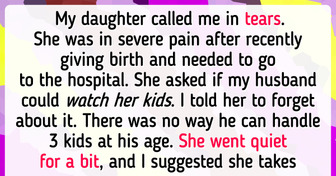
17 Families Whose Mornings Start With a Good Dose of Humor

17 People Revealed What Became the Last Straw in Their Relationship

My Stepdaughter Sabotaged My Marriage, but I Got My Sweet Revenge

14 People Who Have Scratched the Word "Shame" Out of Their Dictionary

I Kicked All My Bridesmaids Out of My Wedding and I Don’t Want to See Them Ever Again

15+ Stories That Prove Moms’ Love Tank Never Runs Empty

My Son Called It a Family Trip Until I Found Out the Real Reason I Was Invited
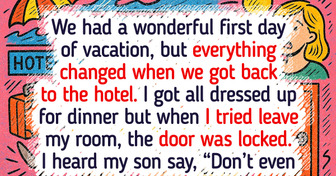
Lizzo Flaunts Major Transformation, but Fans Are Worried
